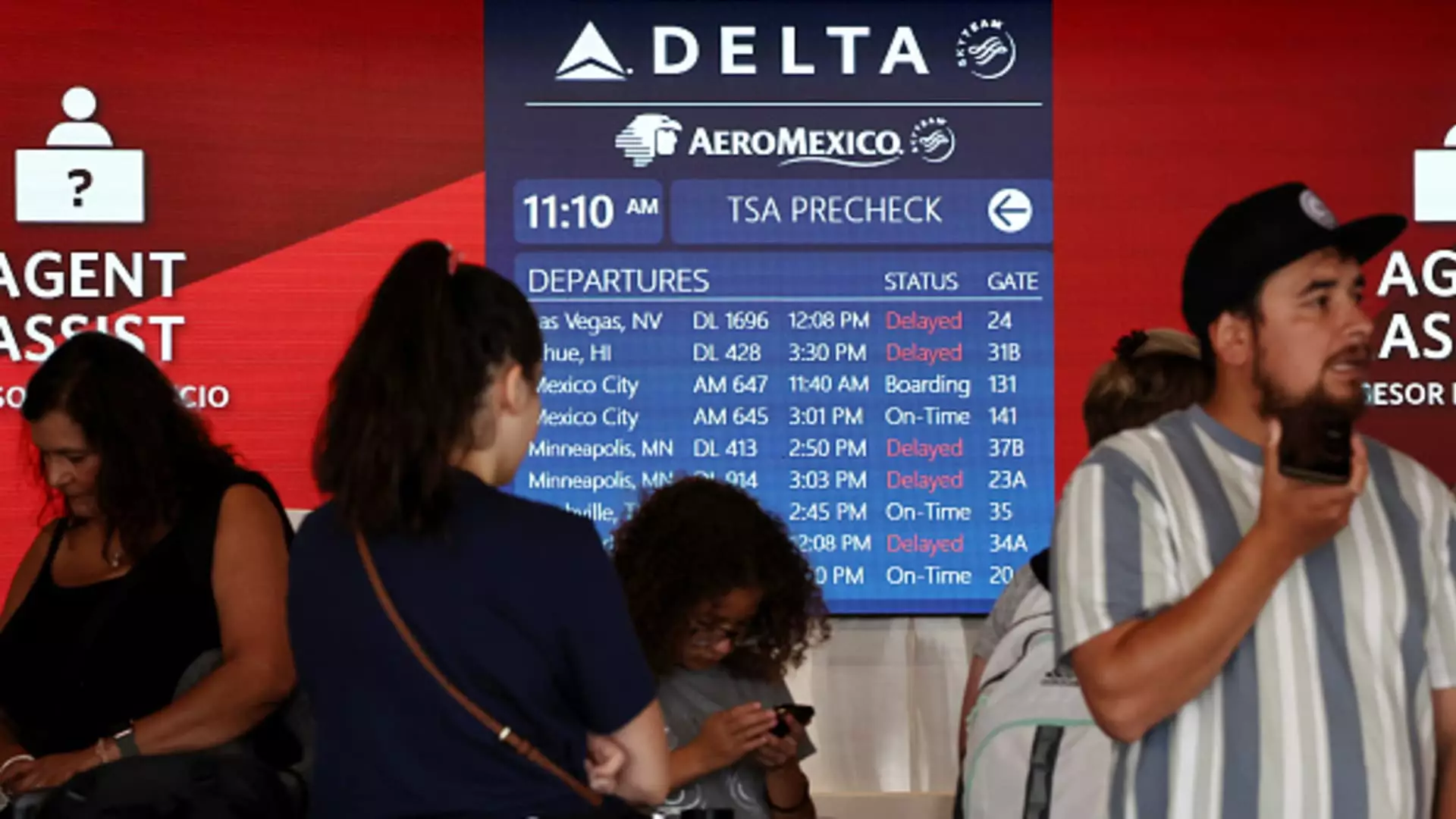Delta Air Lines faced a massive outage last month, resulting in thousands of flight cancellations. Despite the chaos and financial losses, CrowdStrike claimed that Delta rejected their offer of onsite help during this crisis. This rejection came as a surprise, especially considering the scale of the situation and the potential benefits of having expert assistance on hand.
The consequences of the outage were severe for Delta, with CEO Ed Bastian revealing that the company incurred approximately $500 million in losses, including costs for customer compensation. This significant financial hit led Bastian to declare that the airline had no choice but to pursue legal action to recover its losses. CrowdStrike and Microsoft were informed of Delta’s intention to seek damages, indicating a potential legal battle in the near future.
In response to Delta’s litigation threats, Michael Carlinsky, a lawyer representing CrowdStrike, criticized the airline for portraying the cybersecurity company as responsible for the IT decisions and response to the outage. Carlinsky highlighted that CrowdStrike had offered onsite assistance to Delta, but received no response. This lack of collaboration raised questions about Delta’s handling of the situation and its willingness to accept external support.
The fallout between Delta and CrowdStrike has implications beyond the financial and legal aspects. Carlinsky’s letter suggested that Delta would need to explain its actions to the public, shareholders, and potentially a jury if it chose to pursue legal action against CrowdStrike. The transparency and accountability of both companies were called into question, prompting a closer examination of their respective roles in the outage and its aftermath.
According to the letter from Carlinsky, CrowdStrike’s contractual liability is capped in the single-digit millions, limiting the potential financial impact of any legal claims from Delta. Despite this limitation, CrowdStrike expressed a willingness to cooperate with Delta to reach a resolution. The company also pledged to release future software updates in stages to prevent similar incidents from occurring in the future.
The fallout between Delta and CrowdStrike has not gone unnoticed by shareholders, with some taking legal action against CrowdStrike in a Texas federal court. These shareholders are seeking damages for the declines in their investments following the outage. As CrowdStrike prepares to report its fiscal second-quarter results later this month, the outcome of this dispute with Delta may have broader implications for the company’s financial performance and reputation.
The fallout between Delta Air Lines and CrowdStrike highlights the complexities of managing IT disruptions in a high-stakes environment. The rejection of onsite assistance, the financial losses incurred, the legal threats exchanged, and the implications for public perception and shareholder interests all underscore the need for effective crisis management and collaboration in the face of unexpected challenges. As both companies navigate the aftermath of this incident, their responses will shape not only their own futures but also the broader expectations of customers, shareholders, and industry stakeholders regarding cybersecurity and contingency planning.


Leave a Reply